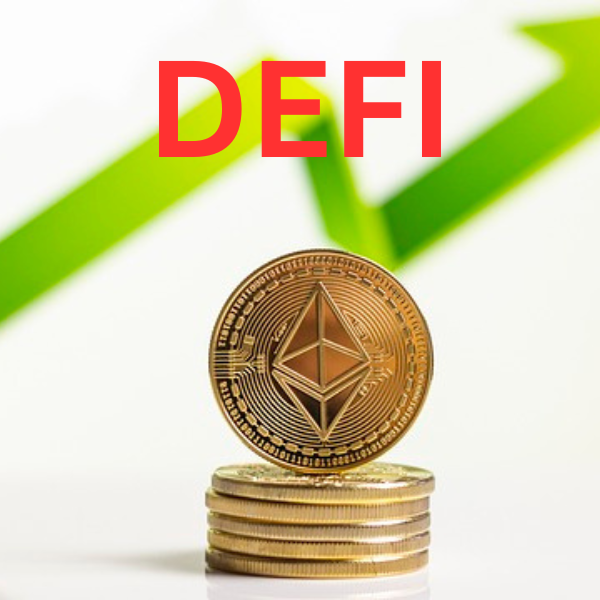In the rapidly evolving world of digital currencies, the debate of Bitcoin vs. Ethereum: Which Cryptocurrency Should You Invest In? has become a central topic for investors and enthusiasts alike. Both Bitcoin and Ethereum have emerged as leading cryptocurrencies, each with its unique attributes and potential for growth. This article delves deep into the intricacies of Bitcoin and Ethereum, examining their strengths, differences, and the factors that might influence your investment decision.
Table of Contents
Introduction to Bitcoin and Ethereum

Bitcoin: The Pioneer of Cryptocurrencies
Bitcoin, created in 2009 by an anonymous entity known as Satoshi Nakamoto, is the first and most well-known cryptocurrency. It introduced the concept of decentralized digital currency, using blockchain technology to ensure security and transparency. Bitcoin’s primary use case is as a store of value and a medium of exchange, akin to digital gold.
Ethereum: Beyond Digital Currency
Launched in 2015 by Vitalik Buterin, Ethereum brought a new dimension to the cryptocurrency space. While it functions as a digital currency, Ethereum’s primary innovation is its smart contract functionality, which allows developers to create decentralized applications (dApps) on its platform. This has positioned Ethereum not just as a currency but as a comprehensive blockchain ecosystem.
Technological Foundations
Bitcoin’s Blockchain
Bitcoin’s blockchain is designed for simplicity and security. It operates on a proof-of-work (PoW) consensus mechanism, where miners solve complex mathematical puzzles to validate transactions and create new blocks. This process ensures that the Bitcoin network remains decentralized and secure, albeit at the cost of high energy consumption.
Bitcoin’s blockchain is a decentralized digital ledger, fundamental to the cryptocurrency’s operation. It securely records every transaction across a vast network of computers through a proof-of-work mechanism. This system ensures transparency, immutability, and resistance to fraud. In the debate of “Bitcoin vs. Ethereum: Which Cryptocurrency Should You Invest In?”, Bitcoin’s blockchain stands out for its pioneering role and robustness. It is the foundation of the first and most widely recognized cryptocurrency, often considered a digital gold standard. Understanding Bitcoin’s blockchain is crucial when evaluating the merits of Bitcoin vs. Ethereum: Which Cryptocurrency Should You Invest In?
Ethereum’s Smart Contracts and DApps
Ethereum’s blockchain also uses a PoW mechanism (with plans to transition to proof-of-stake, or PoS, through Ethereum 2.0). However, its defining feature is the ability to execute smart contracts—self-executing contracts with the terms directly written into code. This enables the creation of dApps, which can range from decentralized finance (DeFi) platforms to non-fungible tokens (NFTs).
Market Position and Adoption
Bitcoin’s Market Dominance
Bitcoin remains the dominant cryptocurrency by market capitalization, often seen as a “safe haven” asset in the volatile crypto market. It has garnered significant attention from institutional investors, and its finite supply of 21 million coins adds to its appeal as a hedge against inflation.
Ethereum’s Expanding Ecosystem
While Bitcoin is often compared to digital gold, Ethereum is likened to digital oil due to its utility in powering dApps. Ethereum’s market cap is second only to Bitcoin, and its ecosystem supports thousands of projects and tokens. This versatility has attracted a diverse range of developers, businesses, and investors.
Investment Potential
Bitcoin: The Digital Gold Standard
Bitcoin’s primary value proposition lies in its scarcity and security. Its fixed supply and widespread adoption make it a robust store of value, especially in times of economic uncertainty. As more institutional investors enter the market, Bitcoin’s price could continue to rise, albeit with significant volatility.
Ethereum: Fueling Innovation
Ethereum’s investment potential is driven by its use cases beyond simple transactions. The rise of DeFi, NFTs, and other blockchain-based innovations on the Ethereum network suggests substantial growth prospects. However, its price is also subject to volatility and competition from emerging smart contract platforms.
Risk Factors
Bitcoin’s Challenges
Bitcoin faces several challenges, including regulatory scrutiny, scalability issues, and environmental concerns due to its energy-intensive PoW mechanism. While its position as the leading cryptocurrency provides some resilience, these factors could impact its long-term viability.
Ethereum’s Hurdles
Ethereum’s transition to Ethereum 2.0 and PoS aims to address its scalability and energy consumption issues. However, the process is complex and fraught with technical challenges. Additionally, the proliferation of competing smart contract platforms could dilute Ethereum’s market share.
Use Cases and Real-World Applications
Bitcoin’s Use Cases
Bitcoin’s primary use cases include:
- Store of Value: Often referred to as “digital gold,” Bitcoin is used as a hedge against inflation and economic instability.
- Medium of Exchange: Although less common due to its volatility, Bitcoin is accepted by various merchants and service providers worldwide.
- Investment Asset: Bitcoin is a popular choice for both retail and institutional investors seeking exposure to cryptocurrencies.
Ethereum’s Versatility
Ethereum’s broader utility includes:
- Decentralized Finance (DeFi): Platforms offering lending, borrowing, and trading services without intermediaries.
- Non-Fungible Tokens (NFTs): Unique digital assets representing ownership of items like art and collectibles.
- Smart Contracts: Enabling automated, transparent agreements across various industries, from insurance to supply chain management.
Long-Term Outlook
Bitcoin’s Future
Bitcoin’s future largely depends on continued adoption and acceptance as a legitimate asset class. Its integration into traditional financial systems, such as Bitcoin ETFs and payment processors, could drive further growth. However, regulatory developments and technological advancements will play crucial roles.
Ethereum’s Evolution
Ethereum’s transition to Ethereum 2.0 is expected to significantly enhance its scalability, security, and sustainability. If successful, this upgrade could solidify Ethereum’s position as the leading smart contract platform. Additionally, the ongoing innovation within its ecosystem suggests a promising future.
Bitcoin vs. Ethereum: Which Cryptocurrency Should You Invest In? The answer depends on your investment goals and risk tolerance. Bitcoin offers a straightforward value proposition as a digital store of value, while Ethereum provides exposure to a diverse range of blockchain applications. Both cryptocurrencies have unique strengths and challenges, making them complementary assets in a diversified portfolio.
As the cryptocurrency market continues to evolve, staying informed and adapting to new developments will be key to making sound investment decisions. Whether you choose Bitcoin, Ethereum, or both, understanding their fundamental differences and potential will help you navigate the dynamic world of digital assets.
Exploring the Future: Top Cryptocurrencies to Watch in 2024 emphasizes the ongoing debate of Bitcoin vs. Ethereum: Which Cryptocurrency Should You Invest In? Both cryptocurrencies have unique strengths, with Bitcoin known for its stability and Ethereum for its smart contract capabilities, making them top contenders for future investment.
In summary, Bitcoin vs. Ethereum: Which Cryptocurrency Should You Invest In? remains a crucial question for any crypto investor. By examining their technological foundations, market positions, investment potentials, and risk factors, you can make a more informed choice that aligns with your financial objectives and risk appetite.




